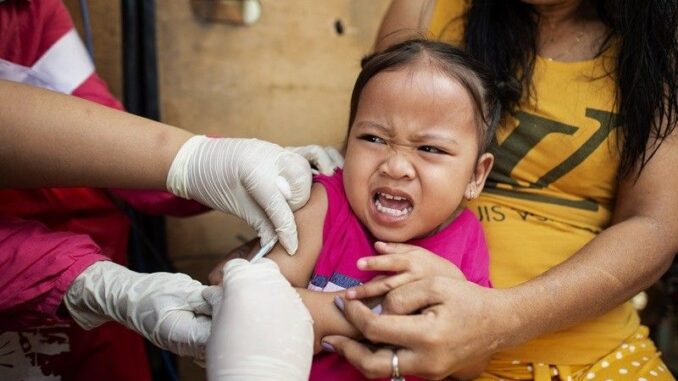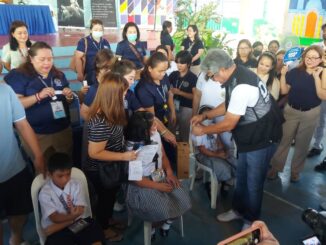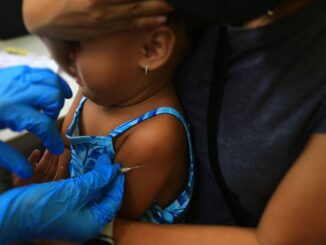
MANILA, Philippines — A nationwide school vaccination program for public schools will commence on October 7, the Department of Health (DOH) announced on Tuesday, September 17.
The DOH has partnered with the Department of Education to kick off their Bakuna Eskwela program at Dr. Alejandro Albert Elementary School in Sampaloc, Manila as part of the government’s effort to boost the national immunization campaign for children.
Students from Grades 1 to 7 will be offered vaccines for human papillomavirus (HPV), measles, rubella, tetanus and diphtheria. They may receive the vaccinations every Friday after October 7, Health Secretary Teodoro Herbosa said.
Specifically, HPV vaccines will be administered to Grade 4 female students to prevent potential cervical cancer.
The DOH said that it targets to vaccinate 2 million Filipino children annually, and the current rate is only at 34%. This means that there are still about 1.32 million children who have yet to be immunized this year.
According to Republic Act 10152 or the Mandatory Infants and Children Health Immunization Act of 2011, children are required to receive vaccinations against these vaccine-preventable diseases.
If parents refuse to consent to their child’s vaccination, the DOH said it will collaborate with local government units to deploy health workers who will address concerns and provide information about the vaccine’s safety and benefits.
The vaccination program, however, is not mandatory. Parents who prefer not to vaccinate their children will be respected, the health secretary said.
What about private schools? While public schools will be prioritized for vaccinations, private schools can coordinate with nearby public schools to arrange vaccinations for their students, provided that parents give their consent.
“What I will do is, if there are children of that age even if they are in private schools, I’ll make sure that the program does not turn away any child, even if they are from nearby private schools,” Herbosa said in a mix of English and Filipino.
Reasons for catch-up plans. Herbosa explained that the low immunization rate in the past years is a result of the COVID-19 pandemic. He said that schools were closed and the country was focused on administering vaccines for COVID-19.
Another reason is the difficulty in ensuring that the supply of vaccines to far-flung regions, such as in the Bangsamoro Autonomous Region in Muslim Mindanao, remains in refrigerated storage. This is needed to maintain the vaccine’s potency.
“One struggle is logistics and supply chain management. In the provinces, power outages are frequent. So, if everything is transported to the province tomorrow, it might already be damaged,” the health secretary said in English and Filipino.
How do they plan to resolve this? The DOH is considering a public-private partnership with logistics companies that can handle vaccine deliveries with cold-chain capabilities.
For 2025, the DOH has allocated 7.9 billion for the procurement of vaccines alone. Herbosa added that there is a separate budget for the allowances of health workers and information dissemination campaigns.
The DOH aims to achieve a 95% annual immunization rate for Filipino children each year. With the current rate at 71%, Herbosa hopes that these catch-up plans will help close the gap and reach the annual target.





Be the first to comment